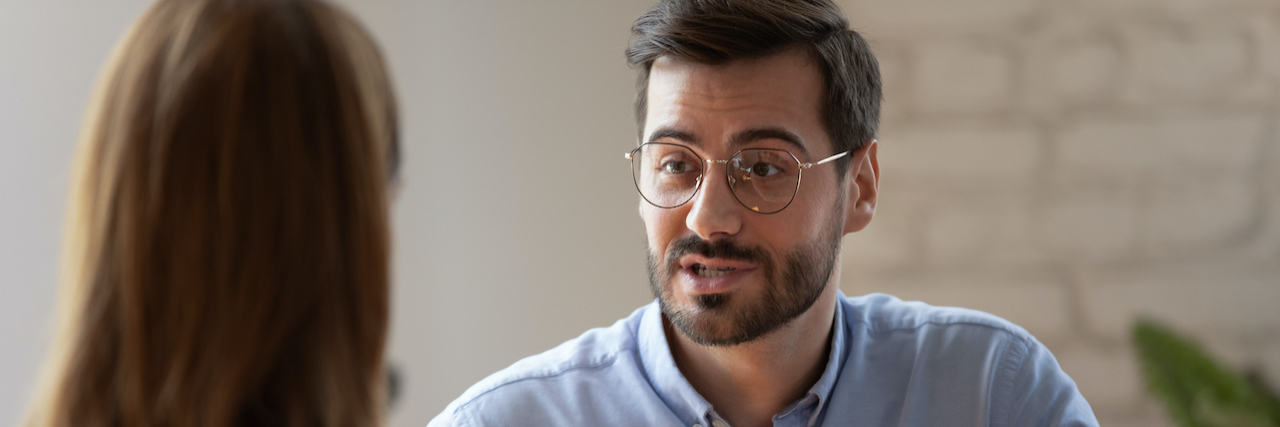It takes a special intellect to know what to say and what not to say. It takes a special kind of perception to quickly know if a stranger will understand or not understand when I answer a personal question they may have just asked me. I have not necessarily mastered it, but I do my best to try to understand when a new acquaintance asks me a question.
I was born with a speech impediment. When I was a child, I often kept quiet out of fear I would embarrass myself if I talked. My speech impediment was having trouble with the “r” sound. I may have gotten better with my speech impediment, but I still have trouble with some words. Two words come to mind that I have trouble with “work” and “rural.” Instead, of saying these words wrong, I try to find different words I can say that mean the same. Instead, of saying work out as in “I like to work out.” I say “exercise.” I can say exercise fine.
My parents live in rural Virginia. Instead, of saying “rural” I say, “the country.” “My parents live in the country.” Sometimes when I speak, I sound like I am from New York. One time at the Veteran’s hospital I was in the room to get my shot. I was talking with the nurse. She told me she was from upstate New York. I repeated, “You are from New York,” in my best imitation of a New York accent. She said, “You must be from there too.” I said, “No, it is a speech impediment.” Her face became serious, and she said, “I think you are getting smart with me.” I assured her I did, in fact, have a speech impediment.” I am glad I discovered writing later in my life, and I quickly learned this was a good way to communicate my thoughts. I have realized that through writing, I do not have to stay quiet.
With schizophrenia, I am learning to have a similar kind of knowledge. When I meet a new acquaintance, I do my best to find out if they will understand that not only do I have schizophrenia, but also that I am managing it well.
When it comes to meeting mental health professionals or even a nurse, they will be fine with my living on my own with schizophrenia.
When I talk to my neighbors around my apartment complex, I am careful with what I disclose. When it comes to the question, “So what do you do?” I do my best to be careful with the answer. I wish I lived in a world where I do not have to walk on eggshells with the answer to “So what do you do?” I wish I lived in a world where I could answer this question with exactly what I am thinking. I wish I could say, “I have schizophrenia that I manage with medication. I have nothing to be ashamed about. I am a published writer and a mental health advocate, and I live a very fulfilling life.”
Saying that I am a mental health advocate and published writer is how I usually answer. People usually leave it at that, but others feel the need to ask more questions. Sometimes I just answer, “I write first person accounts of living with schizophrenia.” Most of the time after that, they do not have questions. My answer leaves them speechless, probably because they have not met many people who speak openly about mental illness.
Despite some awkwardness, I have gotten better at knowing what to say, and what not to say. I have friends, a whole community, who share my diagnosis of schizophrenia. Sometimes I see their posts on social network, and it just makes feel content. I realize I am not alone. There are other people out there who deal with the same things I do. There are people out there such as my trust partners, my mom and my dad, with whom I can say whatever is on my mind. That is powerful. That makes me feel powerful. I also hope my articles help other people, as many of them have helped me. In this schizophrenia community, we are not competitive. We understand each other and often encourage each other. We all have our own ways in dealing with tough days. We can say whatever to each other. We are not alone.
Until the stigma surrounding mental health is eradicated, there will always be the question of what to say and what not to say, but we are making progress with learning how to open up the conversation that so desperately needs to be had.
Getty image by fizkes

